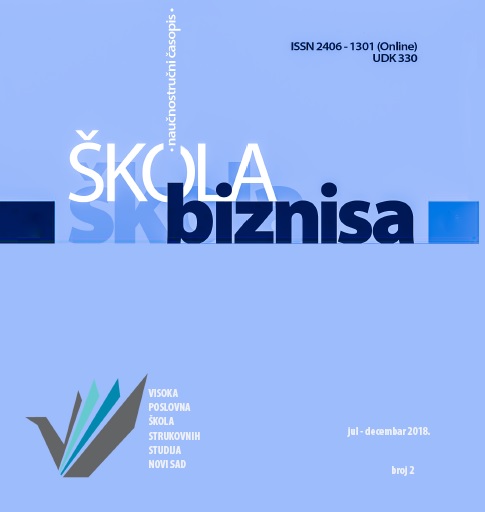THE POSSIBILITIES OF APPLYING HEDGING STRATEGIES ON INTERNATIONAL COMMODITY EXCHANGES
Abstract
The aim of the paper is to determine the possibilities of implementing hedging strategies of Serbian agricultural producers on foreign commodity exchanges. Considerable fluctuations in prices of agricultural products in Serbia create the need for the use of futures in commodity exchanges in order to protect against unfavourable change in prices of agricultural products in the future period. Due to the fact that Serbia has not established the trading in commodity derivatives, Serbian producers are having to use developed commodity exchanges abroad. The paper analyses the possibilities of using the Chicago Mercantile Exchange in the USA and the MATIF commodity exchange in Paris, looking at two aspects of the activities. First, the correlation of corn prices on domestic and foreign commodity exchanges was investigated, given that it is the basic prerequisite for the application of successful hedging strategies and, secondly, legal requirements, primarily tax policies related to trade of futures contracts. This paper has found that there is a high correlation between the crops price in the foreign commodity markets and spot market in Serbia, which provides a solid basis for the implementation of hedging strategies for underlying assets in foreign commodity markets. However, it has been found that inadequate taxation policy is an aggravating factor for the implementation of hedging strategies.
- Authors retain copyright and grant the journal right of first publication with the work simultaneously licensed under a Creative Commons Attribution License that allows others to share the work with an acknowledgement of the work's authorship and initial publication in this journal.
- Authors are able to enter into separate, additional contractual arrangements for the non-exclusive distribution of the journal's published version of the work (e.g., post it to an institutional repository or publish it in a book), with an acknowledgement of its initial publication in this journal.
- Authors are permitted and encouraged to post their work online (e.g., in institutional repositories or on their website) prior to and during the submission process, as it can lead to productive exchanges, as well as earlier and greater citation of published work (See The Effect of Open Access).

